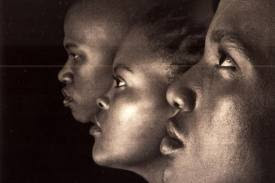An annual youth festival taking place outside Ritual Stores Newtown, Johannesburg. Featuring artists representing the pinnacle of artistic expression from South Africa, this unique youth event has grown into the largest public display of both commercial and underground hip hop in South Africa, presenting a day of live music, street art, break-dancing, art installation, skateboarding, film, street fashion, gaming, speakers and panel discussions.
The event is the one time that the inner city comes alive with true freedom of expression providing a destination for hip hop fans, artists and industry related individuals to converge and celebrate the experience of hip hop and youth culture.
In a nut shell... It's going to be a day to remember so bring your sense of style, a good mood and your wallets. Remeber to always stay BornToBe #GaffdRepublic.








